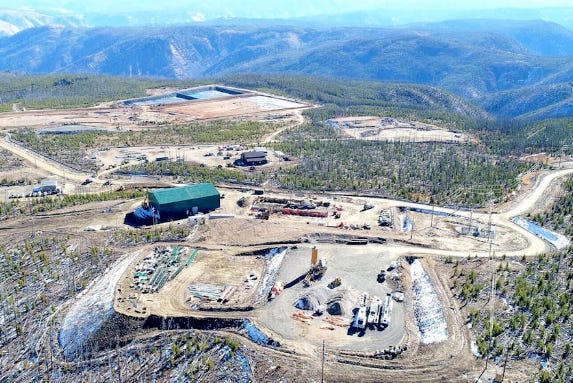Untold food truths - regulations & supply chain
Are you aware of the farmers revolts and protests that have been ongoing since October 2019 throughout the EU, including the Netherlands, Germany, France, and Belgium? The protests came about after their respective governments’ enacted stricter nitrogen regulations due to EU environmental laws which threaten the farmers’ livelihoods and ultimately the food supply.
Thankfully, the farmers did not back down. They understood that a war against farming is a war against the food supply. And a war against humanity.
Complaints
The EU Green Deal intended its environmental and agricultural policy changes to make agriculture more sustainable, but farmers argued that the measures were too extreme and would make farming financially unviable.
The Netherlands is the world's second-largest agricultural exporter. It was targeted hardest as it is one of the top greenhouse gas emitters in Europe due to its cattle-produced manure and fertilizer (i.e., nitrogen).
The Dutch government implemented strict nitrogen emission regulations to address protection of nature reserves and compliance with EU environmental laws, requiring farmers to significantly reduce nitrogen emissions. Germany introduced similar regulations to reduce nitrogen pollution, impacting farming practices and requiring costly changes in manure management and fertilizer use.
Common Agricultural Policy (CAP) reforms included stricter environmental requirements for subsidies, causing concern among farmers about reduced financial support.
COVID-19 had disrupted supply chains and exacerbated finances. Farmers were already financially struggling, making it even more difficult to absorb additional costs of implementing new environmental regulations.
Farmers argued that the policies unfairly targeted them while big business and industries got passes. Farmers also resisted plans to scale down or close their farms.
"It's not normal, what's being done to the farmers," 74-year old protester Jan Poorter told AFP. "You can't just close farms that are hundreds of years old. You just can't!"
Protests
Farmers in the Netherlands were particularly vocal, organizing multiple protests throughout 2020 and beyond.
Farmers drove their tractors to The Hague, causing significant traffic disruptions and making their grievances highly visible.
Farmers dumped manure on government buildings and public spaces in protest of the regulations and blocking highways with bales of hay, tires and other debris.
Farmers also organized large tractor convoys and gathered in large demonstrations at government buildings and public spaces to raise awareness of the impact of these regulations.
Outcome
The situation is ongoing. The protests have increased dialogue between farmers, governments, and policymakers. Subsidies are now beginning to expire and taxes are increasing, inflaming farmers again. The protests underscored the need for policies that consider the economic realities of farmers while addressing environmental concerns of governments.
Oh Canada
Canadian farmers have also protested environmental regulations, stringent agricultural policies, and economic challenges affecting their farming communities:
In 2020, farmers in Alberta and Saskatchewan protested the proposed changes to farm labor laws and carbon taxes. Alberta focused on rolling back previous farm labor regulations to provide more flexibility to farm owners and opposing federal carbon taxes, while Saskatchewan continued to resist federal carbon taxation and maintained its position on minimal regulatory interference in farm labor.
In 2022, farmers protested Trudeau's plan to reduce nitrous oxide emissions 30% below their 2020 levels by the year 2030. But farmers expressed concerns about the impact on crop yields and financial viability, as “…any attempt to lower admissions by reducing nitrogen fertilizer will consequently lower crop yields over the next decade, hurting the Agriculture sector and, more importantly, hurting farmers.” (Canadian Riley).
America
Restrictions and changes to our food supply chain are here, too, Raddie:
In May 2024, the Idaho Department of Water Resources issued a curtailment order affecting approximately 500,000 acres of farmland, requiring junior groundwater rights holders on the Eastern Snake Plain Aquifer to cease irrigation unless they comply with state-approved mitigation plans.
Idaho farmers claim that there is actually a water surplus this year and their water resources will instead be allocated to industrial and municipal uses, particularly for urban development and other non-agricultural industries such as cobalt mining (pictured above).
Farmers and the Idaho public view the reallocation of water as a threat to the agricultural water supply, leading to conflicts between agricultural and urban/industrial water users. They argue that prioritizing for industrial use over agriculture will jeopardize food production and rural economies (East Idaho News).
Idaho Governor Brad Little made a milquetoast statement on the issue and his citizens were furious, as was this author who wrote how this practice is unjustifiable.
Multi-generation Idaho farmer Brian Murdock discussed the curtailment order with Fox Business News on 6/23/2024:
Who owns what?
It is important to know. For example, Bill Gates owns 275,000 acres of U.S. farmland (25,750 in Arizona alone). He also wants us to eat bug protein, synthetic beef and other “techno-foods.”
And countries like China have been purchasing as well, including WH Group (formerly Shuanghui International) that purchased Smithfield Foods in 2013 for $4.72 billion.
As of Summer 2023, the Chinese owned 383,934 acres of US Agricultural land, including three hundred acres purchased near Grand Forks Air Force Base in ND in 2021.
Finally, this Marine and farmer shares his take on the Idaho farming issue, explaining what people do not understand about farming and how quickly our food supply can change.
Keep current.
We must stay current with the happenings to our global and local food supply chains. The EU farmers have been fighting their issues for at least five years and I am certain that few of us knew about it. So, let's close our knowledge gap starting now.
Topic 1: Farmer Keith Andrews explains how the government is paying farmers handsomely to leave food rotting in the ground. Why would any government do this?
Topic 2: Austrian Survival Lilly warned us last week about the newest regulations hitting the EU. You can be certain these are coming for us, too. Please listen to Lilly’s video so that you can act accordingly.
She discusses the following:
Food producers will be using CRISPR technology in the food supply. They do not have to label or disclose this practice, and this includes our organic foods.
The EU will reattempt to make heirloom seeds illegal, restricting farmers from sharing/selling to small gardeners and thus preventing seed saving and gifting. (Their first attempt to use “officially approved farm seed only” was in 2014.)
Corporations such as Bayer and Heineken have plans to secure exclusive patented rights to foods like tomatoes, melons, malting barley. And yes, that means beer, too. There would be no escaping GMO foods.
You can read the two articles Lilly mentions in her video by following the links below. When the webpage opens, click “zustimmen & weiter” which translates to “agree & move on.” Your browser will translate the articles to English.
auf uns rollt flut an frankenstein (A flood of Frankenstein patents are rolling towards us)
EU lässt aufhorchen: - Gentechnik-Verbot in „Bio“ soll fallen (Ban on genetic engineering in “organic” products to be lifted)
Remember, you are what you eat, digest, and absorb so keep asking the WHYs about everything, especially when it comes to our foods. And be sure to stay current on all food-related news stories.
Peace out and make it an informative Friday Eve.












